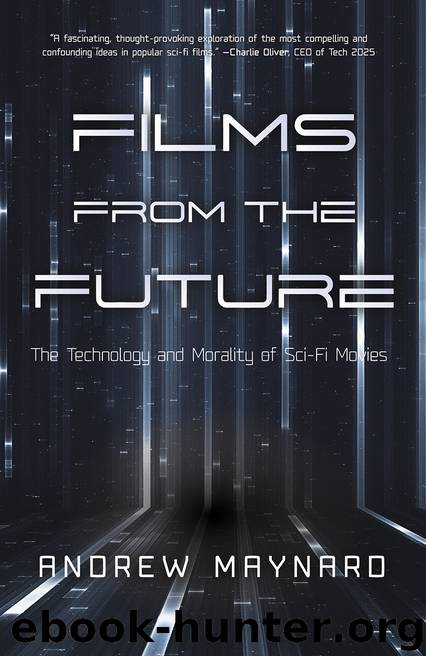Films from the Future by Andrew Maynard

Author:Andrew Maynard [Maynard, Andrew]
Language: eng
Format: epub
Publisher: Mango Publishing Group
Published: 2018-10-26T04:00:23+00:00
Private space exploration isn’t quite permissionless innovation; there are plenty of hoops to jump through if you want permission to shoot rockets into space. But the sheer audacity of the emerging technologies and aspirations in what has become known as “NewSpace” is being driven by very loosely constrained innovation. The companies and the mega-entrepreneurs spearheading it aren’t answerable to social norms and expectations. They don’t have to have their ideas vetted by committees. They have enough money and vision to throw convention to the wind. In short, they have the resources and freedom to translate their dreams into reality, with very little permission required.108
The parallels with Nathan in Ex Machina are clear. In both cases, we see entrepreneurs who are driven to turn their science-fiction-sounding dreams into science reality, and who have access to massive resources, as well as the smarts to work out how to combine these to create something truly astounding. It’s a combination that is world-changing, and one that we’ve seen at pivotal moments in the past where someone has had the audacity to buck the status quo and change the course of technological history.
Of course, all technology geniuses stand on the shoulders of giants. But it’s often individual entrepreneurs operating at the edge of permission who hold the keys to opening the floodgates of history-changing technologies. And I must admit that I find this exhilarating. When I first saw Elon Musk talking about his plans for interplanetary travel, my mind was blown. My first reaction was that this could be this generation’s Sputnik moment, because the ideas being presented were so audacious, and the underlying engineering was so feasible. This is how transformative technology happens: not in slow, cautious steps, but in visionary leaps.
But it also happens because of hubris—that excessive amount of self-confidence and pride in one’s abilities that allows someone to see beyond seemingly petty obstacles or ignore them altogether. And this is a problem, because, as exciting as technological jumps are, they often come with a massive risk of unintended consequences. And this is precisely what we see in Ex Machina. Nathan is brilliant. But his is a very one-dimensional brilliance. Because he is so confident in himself, he cannot see the broader implications of what he’s creating, and the ways in which things might go wrong. He can’t even see the deep flaws in his unshakable belief that he is the genius-master of a servant-creation.
For all the seductiveness of permissionless innovation, this is why there need to be checks and balances around who gets to do what in technological innovation, especially where the consequences are potentially widespread and, once out, the genie cannot be put back in the bottle.
Download
This site does not store any files on its server. We only index and link to content provided by other sites. Please contact the content providers to delete copyright contents if any and email us, we'll remove relevant links or contents immediately.
Enlightenment Now: The Case for Reason, Science, Humanism, and Progress by Steven Pinker(7311)
A Journey Through Charms and Defence Against the Dark Arts (Harry Potter: A Journey Through…) by Pottermore Publishing(4811)
The Immortal Life of Henrietta Lacks by Rebecca Skloot(4587)
A Journey Through Divination and Astronomy by Publishing Pottermore(4385)
Elon Musk by Ashlee Vance(4127)
Origin Story: A Big History of Everything by David Christian(3692)
COSMOS by Carl Sagan(3623)
Alchemy and Alchemists by C. J. S. Thompson(3520)
Bad Pharma by Ben Goldacre(3427)
Enlightenment Now by Steven Pinker(3368)
Shadow of Night by Deborah Harkness(3367)
Inferior by Angela Saini(3313)
A Mind For Numbers: How to Excel at Math and Science (Even If You Flunked Algebra) by Barbara Oakley(3305)
Origin Story by David Christian(3201)
The Code Book by Simon Singh(3189)
Signature in the Cell: DNA and the Evidence for Intelligent Design by Stephen C. Meyer(3138)
The Elements by Theodore Gray(3057)
A Brief History of Time by Stephen Hawking(3024)
A Journey Through Potions and Herbology (A Journey Through…) by Pottermore Publishing(2852)
